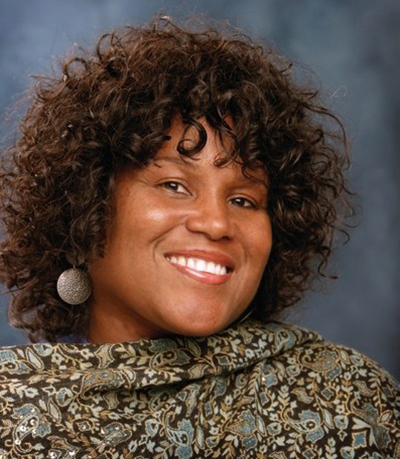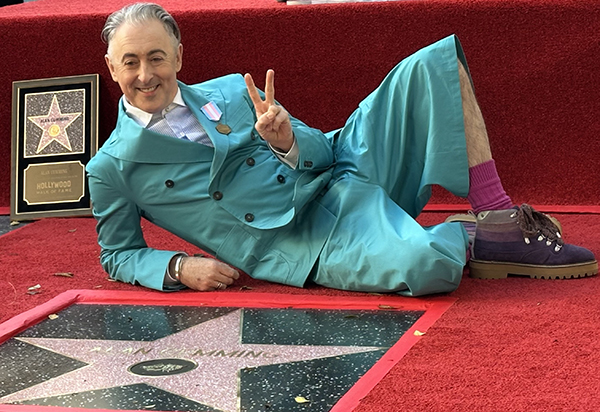Hollywood activist works to boost Black images in film


By Bill Vaughan
Entertainment Writer
LOS ANGELES — Sandra Evers-Manly knew what direction she wanted her life to take when she was 9 years old. She was having a conversation with her mother — who was part of the Evers family of Mississippi (her cousin was Medgar Evers, a civil rights advocate who was assassinated in 1963). And she asked her mother why there weren’t more people who looked like them on television. Her mother’s reply was almost a challenge. “Change it,” she said.
And so she has. After moving to Los Angeles for college, she got involved with the NAACP, eventually succeeding Willis Edwards as president of the Hollywood chapter for 12 years.
“My time with the NAACP was like a roller coaster,” Evers-Manly recalled recently. “Highs and lows. I looked at what was really needed in Hollywood and really felt we had to develop an ecosystem where we were supporting our young filmmakers with scholarships and awareness of the kinds of careers in Hollywood. That we had to have a way to advocate for our filmmakers and films and that once these films were done there was a support system.”
Before leaving the NAACP, she ran into a young man named David Massey who was having difficulty in completing his thesis project due to financing. She lent a hand through ingenuity, and he became the first African American nominated for an Academy Awards in the short film (live action) category with 1991’s “Last Breeze of Summer.”
That led her to co-found the Black Hollywood Education and Resource Center, a nonprofit, public benefit organization, designed to advocate, educate, research, develop, and preserve the history, and the future of Black images in the film and television industry.
“I thought this is really about being there to support our filmmakers from start to finish,” she said.
Evers-Manly remains proud of the young UCLA student she was able to assist in finishing her thesis film years later. Her name was Gina Prince who later became Gina Prince-Bythwood of “Love and Basketball,” “The Woman King,” and “Beyond The Lights” fame.
“I was like OK, this is what we should be doing,” she said. “Not just asking for money from Hollywood but jobs and people in key roles.”
Among her innovations is the First Weekend Club, an action geared to supporting Black filmmakers and the kinds of films Blacks want to see.
“We can’t say ‘let’s boycott.’” she said. “We have to say ‘let’s buy in.’ We can’t just complain. We have to be a part of the solution and part of that is putting butts in the seats.”
Due to 2015’s “Oscars So White” campaign which drew attention to the lack of Black nominees and voting members in the governing Academy of Motion Pictures Arts and Sciences, Evers-Manly was deservedly invited to become a member of the Academy.
Of this year’s results she simply says, “We always want to see more diversity. I was very happy that we had [Paul Tazewell] – a Black man who won Best Costume Design [for “Wicked”], but there’s still work to do.”
Over the last couple of months, she has been providing comfort to seniors who have lost their homes and belongings to the wildfires in Altadena. From hosting gatherings and taking essentials to many temporarily housed in hotels and Airbnbs, her aim has been to help wherever she can.
One event offered food and gift bags including 150 certificates from Octavia Books named after author Octavia Butler, whose writings foresaw this tragedy, along with hundred-dollar bills.
“They were resilient and so grateful,” Evers-Manly said. “You would’ve thought we gave them a million dollars. Everyone says [I’m] focused on the seniors. I am because those are the people who paved the way for us and they’re struggling the most.
“Can you imagine you’re struggling trying to stay at a hotel and in five days you have to move? Do you know what that’s like for someone in their 80s? One woman we’re working with is 101!”
She refutes rumors of landowners being offered a million dollars, saying the highest she’s heard is $499,000 and that she has told seniors to please hold on to their property and get counsel before doing anything. That they would never see that kind of money with the taxes and other things that come with it. Then there’s the problem of where to go in Southern California for that amount.
An affinity with the historic Black district beautifully surrounded by mountains began during her college days.
“So many of my Black friends lived in Altadena,” she said of the time. “I grew up in Northern California and lived in the projects. All I could do was look at those lawns. The people were so wonderful and now many of them have lost their homes.”
Evers-Manly understands the current crisis mode with the powers that be people trying to ban Black history and Black books. She offers that we have to be about investing in ourselves with intent making sure we are keeping it afloat from the hate in this country that is rising out of the ashes.
“That’s a no brainer for me,” she said.
With a desire to aid in telling more stories about the communities that raised us, the former executive recently got involved with the making of “Tolliver’s Barbershop,” a documentary she plans to tour with about a well-known South Los Angeles barbershop where all the politicians go to get a pulse of the Black community.
She hopes to see more stories about heroes such as Ida B. Wells, Fannie Lou Hamer, and other influential Blacks.
In the meantime, Evers-Manly is encouraging people to go to BHERC.org, and support Black storytellers and go to Black theater.
“If we committed to three Black businesses a month and continue to expand it, we are taking action,” she said of a positive directive. “We cannot allow this administration to kill our dreams, to kill our aspirations and our history. We got to act.”
Bill Vaughan is an entertainment writer for Wave Newspapers.





